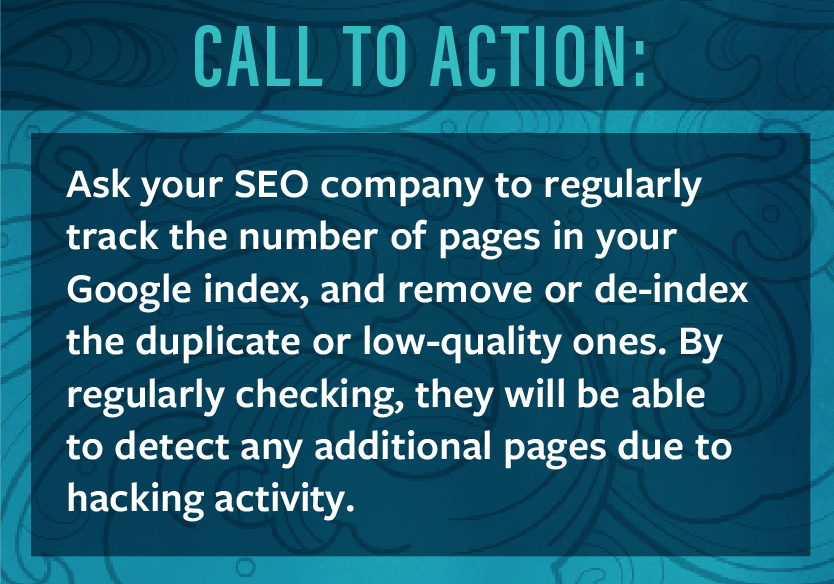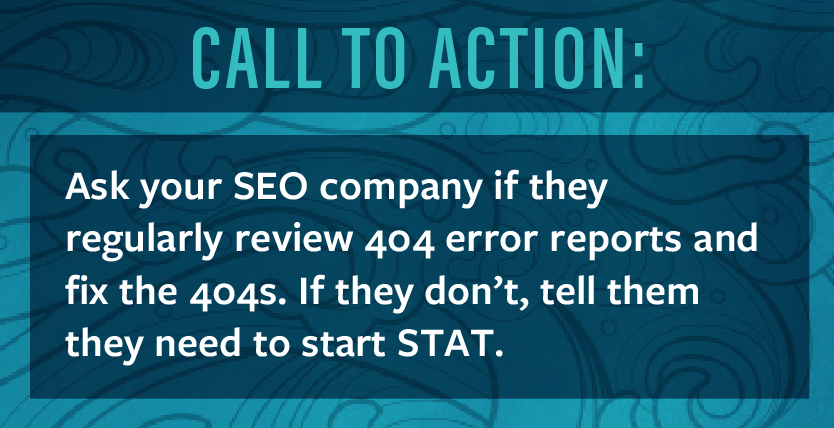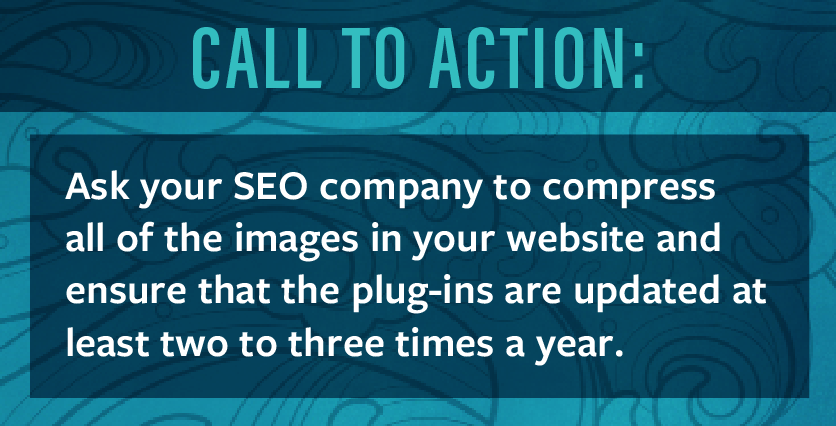Simple website coding errors can have catastrophic consequences on your hard-fought search rankings, traffic, and revenue. Is your site at risk?
Off-the-shelf websites are easy to implement, and anyone with minimal training and skill can get your website up and make simple changes (eg, updating text and adding images), but, in many cases, these platforms include underlying coding issues that are not search engine friendly. This is compounded by the fact that web developers who “build” a website with off-the-shelf platforms typically do not have the skillset required to write code to offset these critical SEO issues or even detect the problematic internal coding problems. Clean code can ensure the maximum ROI on this investment.
Code Red: Index Bloat
Google is ruthless in penalizing sites with duplicate pages or an excessive number of low-quality pages with limited or no content, only images. Unfortunately, many of the popular website platforms, including WordPress and SquareSpace, automatically create duplicate pages for blog posts, individual gallery photos, and graphic images. Also, hackers are constantly attempting to add multiple low-quality pages to these sites that hawk everything from Viagra to diet pills. It is not unusual to find hacked sites with twice as many pirated pages as primary content pages. “Index bloat” problems can be fixed by either removing the pages, or, if they are needed, “de-indexing” them. De-indexing involves placing code on these pages telling Google not to include them in its index.

Code Red: Excessive 404 Errors
404 errors occur when a website visitor or search engine crawler attempts to visit a page on the site that does not exist. If a website visitor simply types in the incorrect URL for the site, rankings are not affected. However, if the error occurs due to improper code, Google will penalize the site’s rankings.
These issues can be readily identified through a broken link report and the 404 error report within Google Webmaster Tools. These should be checked regularly because off-the-shelf platforms often automatically create links within the site, and sometimes the links are incorrect, resulting in 404s.

Code Red: Slow Loading Speed
Site load speed has become an important ranking factor for Google. Easily fixable coding issues can cause slow load speeds. The most common issues are image size and out-of-date plug-ins. These can be cured by ensuring that all images on the site are compressed and by regularly updating plug-ins.




